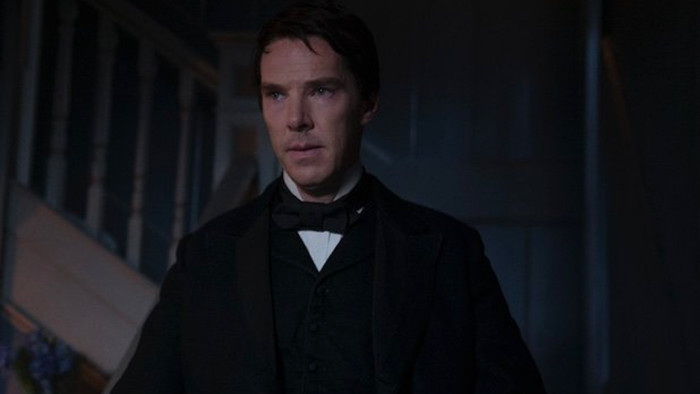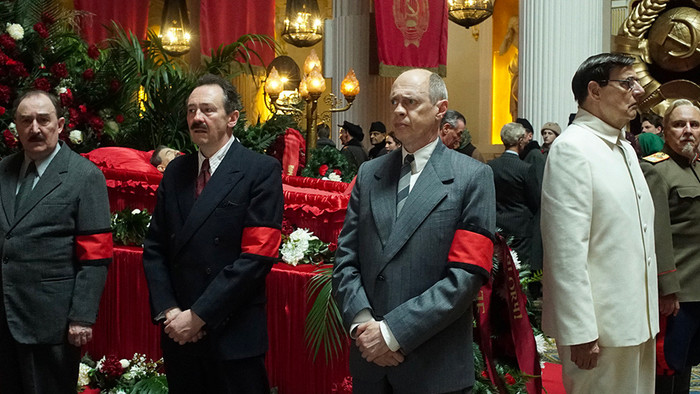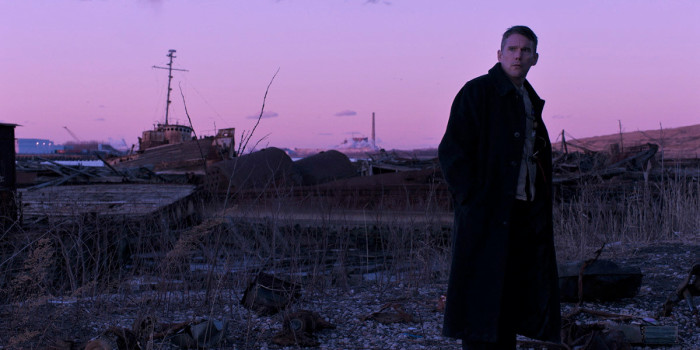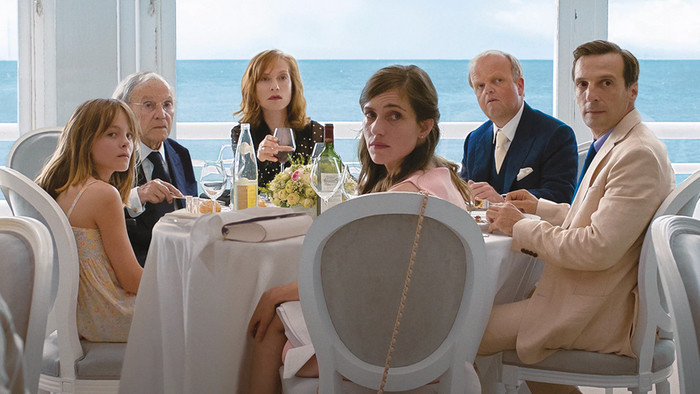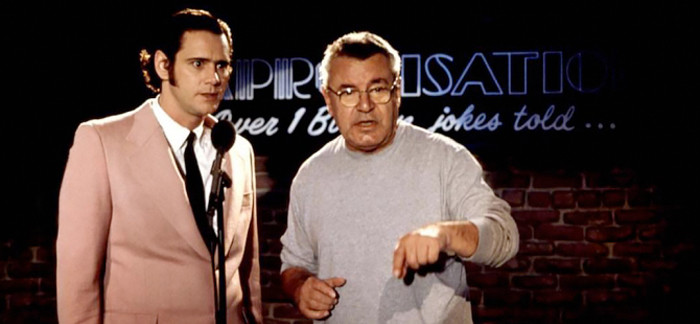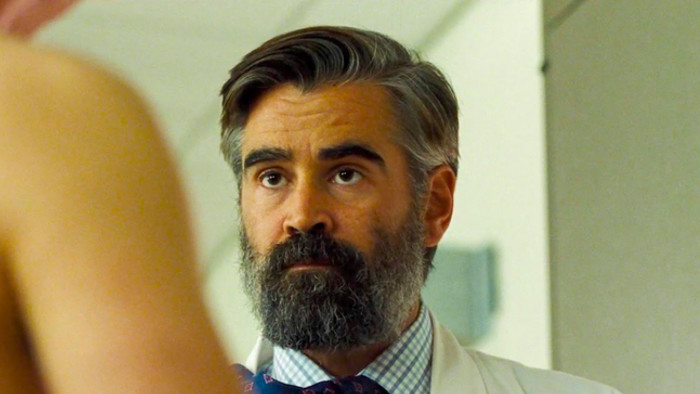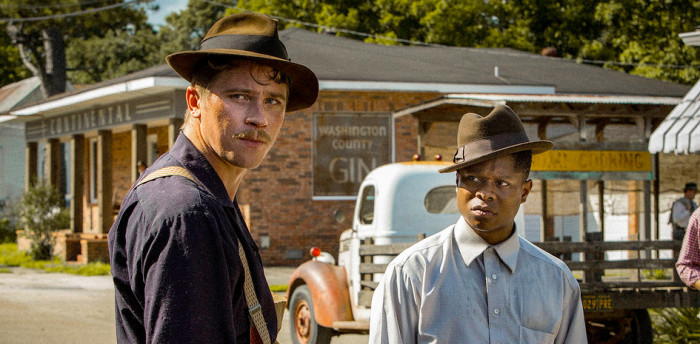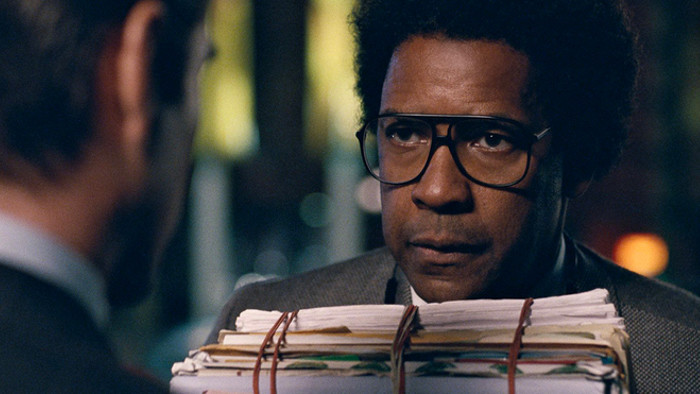Every Movie We Saw At The 2017 Toronto International Film Festival
Another Toronto International Film Festival has been resigned to the dust, and it is time for us to look back on it and remember all the great (and not so great) films we witnessed there.
Truth be told, this year's fest was slightly less exciting than last – the films were good, and some were even fantastic, but overall they did not pack as much of a punch as I'd been hoping. Still, it's hard to deny the thrill one gets from attending TIFF; day after day, you spend hours upon hours watching films with audiences who are genuinely excited to be there, unlike seeing a film at your local multiplex, where the crowd could care less. If you're covering TIFF as press, you rise at dawn, make your way down to the Scotiabank Theatre and spend almost the entire day there. It can be exhausting and draining, but it's also wonderful.
For the sake of completion, I've compiled links to all the /Film reviews (written by me and Marshall Shaffer) out of this year's TIFF, as well as a blurb or two for films that did not receive a full review. Here is every movie we saw at TIFF 2017.
Battle of the Sexes
Dayton and Ferris assemble a massive ensemble of talented performers to bring the manifold speaking roles in Battle of the Sexes to vibrant life. Whether it's the fellow female tennis players who follow King into an uncertain separate league or King's briefly appearing parents, the bench is replete with talented character actors who perk up every scene. No wonder Dayton and Faris shoot the actual tennis battle almost exclusively in a master shot – they save all the cutting to get the reactions of their cast in the stands. 8/10 [Marshall Shaffer's review]
Breathe
As an innovator in the field of motion capture technology, Andy Serkis might possess a greater understanding of the nuances and capabilities of the human face than anyone working in cinema. The knowledge shows early on in Breathe, Serkis' directorial debut, as Andrew Garfield's protagonist Robin Cavendish begins to succumb to paralysis from polio. Serkis shoots his affliction primarily in extreme close-up, a camera length at which Garfield is more than capable at conveying nuance. With just the slightest shift of his glance or the quiver of his lip, Garfield conveys as much as his grandest gestures in other films. 6/10 [Marshall Shaffer's review]
Call Me By Your Name
Luca Guadagnino is the king of summer. Few directors are able to capture the thick, heavy air and hot, humid nights rich with whirring insects that are prevalent during summertime as well as the Bigger Splash director. Here he crafts another lush summer experience, set in Italy during the 1980s. Timothée Chalamet, in a break-out role, is Elio, a young man who finds himself enamored with his father's new assistant (Armie Hammer, once again reminding us he's an excellent actor who deserves better parts than The Lone Ranger). Romantic, hypnotic, and ultimately a touch melancholy, Call Me By Your Name is one of the year's best films. A speech near the end by Michael Stuhlbarg, playing Chalamet's father, will take your breath away. 9/10
Chappaquiddick
Biographical films typically do not choose to dwell on the worst period of a public figure's life, and seldom do they linger in the unsavoriness of their subject to the extent Chappaquiddick does. Taylor Allen and Andrew Logan's script portrays Ted Kennedy as an impulsive figure who often ignores the sage advice of his closest counsel, even nearing an abusive level with his relative Joe Gargan (a touchingly earnest Ed Helms). The film catches Kennedy in a vicious cycle. He's perpetually disappointed in others, which leads him to perpetually disappoint everyone around him. The result is a disgusting miasma of spin and deception that evinces the Kennedy instinct to favor their created myths over the truth. By divorcing Ted Kennedy from his accomplishments, Chappaqudick forces a reckoning over the divide between his rhetoric and his actions. 7/10 [Marshall Shaffer's review]
The Current War
The Current War may not break new ground, but it finds exciting ways to make the old seem new. It runs out of steam near the end, beginning to lag and continuing on well past a scene that would've made for a perfect ending. But this is an inventive film about inventors. "There's a way to do it better – find it," Edison said. The Current War finds a (mostly) better way to tell a familiar story. 6/10 [Full Review]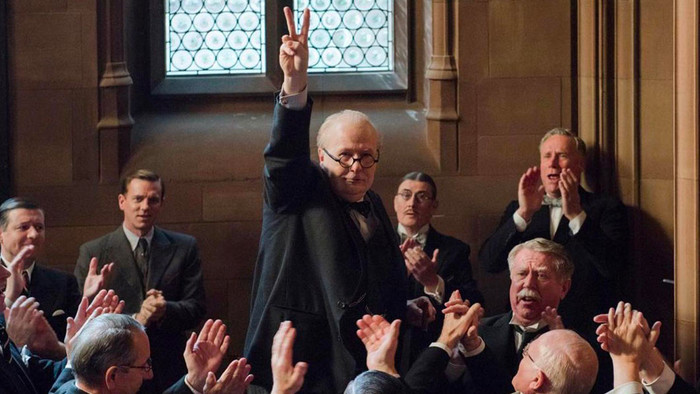
Darkest Hour
Overall though, the power in Darkest Hour rests on Gary Oldman and how he uses Churchill's words. There's plenty to dislike about Churchill's politics, but the man was a great orator, and Darkest Hour stresses the power of Churchill's words, and words in general, through several key moments. But anyone can go in front of a crowd and deliver words – it's whether or not the speaker believes the words that gives them their power. Oldman understands that, and brings it to his performance. 7/10 [Full Review]
The Death of Stalin
It's hard not to see parallels to the current American political climate and that of the chaotic days following the demise of Soviet dictator Joseph Stalin as depicted in The Death of Stalin. Of course, The Death of Stalin manages to make its events much funnier. Much, much funnier. With this film, an adaptation of a graphic novel, Iannucci, who helmed the acerbic In The Loop, has made his masterpiece, a pitch-black comedy of terrors that might be one of the most hilarious films of the 21st century. 9/10 [Full Review]
Downsizing
No matter the narrative hiccups, the issues raised [by Downsizing] are fascinating to ponder because Payne and Taylor take the time to consider them fully. The capacity to shrink humans for population control is a far-fetched sci-fi concept, but the stretching of our planet beyond its capabilities has already begun. Downsizing dares to ask if humans will be ready to make the sacrifices necessary for the survival and preservation of the species is on the line. Payne and Taylor can pose the question without inducing complete debilitation because it's one they ask with genuine concern and empathy for their fellow earthlings. 7/10 [Marshall Shaffer's review]
First Reformed
We've quietly entered a renaissance of master American filmmakers tackling religious subjects with the gravity, dignity and seriousness they deserve. Add Paul Schrader's latest movie First Reformed to a growing list of modern masterpieces on faith through hardship that includes Martin Scorsese's Silence, Terrence Malick's The Tree of Life, the Coen Brothers' A Serious Man and James Gray's The Immigrant. 10/10 [Marshall Shaffer's review]
The Florida Project
The final moments of The Florida Project unfold breathlessly – tension is mounting, and there's the queasy sense that something terrible is about to happen, like a destructive storm about to break. And then Baker does something magnificent – he follows Moonee and Jancey on one last adventure before the credits roll. Is it real or is it fantasy? It doesn't matter. It's magic. We can all do with a bit more magic in our kingdoms. 10/10 [Full Review]
Foxtrot
Comedy and tragedy are usually treated as two wildly different emotions – the Golden Globes even consider them so different as to break up their film awards into two tracks on those lines. But for a writer/director like Samuel Maoz, the dichotomy is not so clear-cut. His new film Foxtrot, the stealth sensation of 2017's fall festival season, evinces how these two experiences are not opposites, but rather two sides of the same coin. Maoz, in just his second narrative feature, repeatedly demonstrates the way hilarity and calamity are never far removed from one another. Just one break in the other direction can produce a wild twist of fate. 9/10 [Marshall Shaffer's review]
Happy End
Michael Haneke is not known for light-heartedness. The Austrian filmmaker behind Funny Games, Caché, The White Ribbon, and Amour specializes in challenging, often incredibly bleak dramas where all is not right in the world.
So when Haneke's new film was announced with the title Happy End, most people familiar with the director likely assumed this was a deliberate misnomer. Well, it is and isn't. Happy End, which played at the Toronto International Film Festival, is perhaps one of the least-depressing films Haneke has made, while also still being plenty of bleak. There's a bemusement at work here, as if Heneke is winking at the audience with every scene. 7/10 [Full Review]
Hostiles
Hostiles features far more big narrative events and skirmishes than the usual existential, moody tone poem, and it has two effects. The first is that it unfortunately makes the film a little uneven, but the second (and more positive) is that it gives Bale and his companions plenty of opportunities to brood over their actions and treatment of the Native population. 7/10 [Marshall Shaffer's review]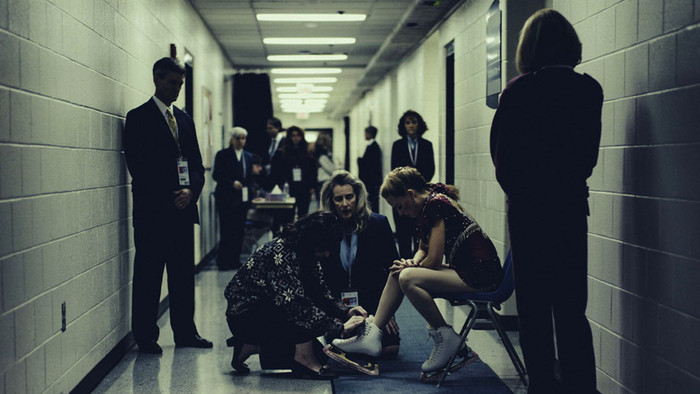
I, Tonya
In the 1990s, the story of figure skater Tonya Harding dominated the early days of the 24-hour news cycle. It was the testing ground for where news was headed, away from reporting and into gossip. It would be repeated tenfold by the O.J. Simpson trial, which came after the Harding incident was dying down. By then, the media was learning a valuable lesson: everyone loves a juicy story with a lot of dirt.
Craig Gillespie's I, Tonya trades in gossip, but it also wants to get to the truth. The truth that many people probably don't even know. For most people, Tonya Harding is little more than a punchline. I, Tonya wants to remind you she's also a person. 7/10 [Full Review]
Jim and Andy: The Great Beyond
Thanks to the magic of time and the countenance of producer Spike Jonze, the tapes finally see the light of day in Jim and Andy, which might have been for the best. Now unyoked from any burden of needing to put butts in seats, Carrey's filmed hijinks are now free to serve as a window into the mindset of his boundary-defying performance style. Smith intercuts and overlays a contemporary interview with Carrey, which adds nearly two decades of perspective to the material. It also provides a good deal of insight into what the actor has been up to in recent years. 8/10 [Marshall Shaffer's review]
The Killing of a Sacred Deer
Tragedy wins out over comedy, and the last half-hour of Sacred Deer descends into the pits of misery porn hell. There's nothing wrong with a dark movie, but the darkness should be in service of something beyond breaking the audience's spirits. Because if that's the true goal...where we're left wondering "how much horror the human mind can stand and still maintain a wakeful, staring, unrelenting sanity," then why bother at all? Still, there's enough talent on display here, from direction to performances, to warrant a watch. But when the credits roll, don't be surprised if you find yourself wishing The Killing of a Sacred Deer would lighten the hell up just a little. 6/10 [Full Review]
Kings
Deniz Gamze Ergüven's Kings is the latest, but almost assuredly not the last, cinematic response to the increased visibility and amplified intensity surrounding conversations on police brutality towards black Americans. The Turkish director claims to have been working on the project for over a decade since she attended film school in the United States, and it's highly likely that a significant factor in getting the film greenlit (and attracting the talent it did) came from the continued prevalence of racially biased policing in the news. If we're due for a rash of these woke-minded dramas, though, they need to have a firmer, more strident voice than what Ergüven displays here. 5/10 [Marshall Shaffer's review]
Lean on Pete
Andrew Haigh's Lean on Pete is a social realist drama of the highest order, combining the gentle pastoral touch of David Lynch's The Straight Story with a probing sympathy for individuals on the edge of society recalling the best of the Dardenne brothers. There's no armchair sociology here, just rich character observation steeped in a spirit of compassion. Haigh never veers into grandstanding "issues movie" territory or troubled youth drama. It's just the story of an adolescent boy in need of the tiniest bit of permanence and security. 9/10 [Marshall Shaffer's review]
Let The Corpses Tan
There's a lot going on here, most of it quickly introduced in the opening scenes of Let the Corpses Tan. Love triangles, gang rivalries, wild fantasies of gold body-painted goddesses glimmering in the summer sun...but any sense of forward motion is held back by the whims of Cattet and Forzani's filmmaking. The plot and character development exists to such minimal extent that it's hard to believe the film is an adaptation of a novel. The writing-directing duo successfully transitions the prose to cinema, though they do so apparently by slaughtering any literary elements and wrangling them into the submission of their aggressive aesthetic. 6/10 [Marshall Shaffer's review]
Manhunt
John Woo made a career creating operatic, ultra-violent crime films peppered with shoot-outs, stand-offs, morally ambiguous characters, and lots and lots of slow-motion doves. Woo eventually made the leap from Hong Kong cinema to Hollywood and created one of the greatest action movies of all time, Face/Off. But Woo's Hollywood adventure was never truly able to rise above the joys of that film, and the filmmaker returned to Hong Kong.
Woo's latest film, the Chinese-Hong Kong production Manhunt, is being heralded (by people who are paid to promote the film) as a return to form, supposedly recalling his classics like A Better Tomorrow and The Killer. Well, don't believe the hype. 6/10 [Full Review]
Molly's Game
This is Jessica Chastain's movie through and through. At this point in her career, it seems almost futile to keep repeating what an incredible actress Chastain is. What else is new? But once again, Chastain crushes it, storming through this film like a hurricane. The performance is so good that it's almost a crime that Sorkin decided to overlay the film with constant narration. Sorkin may be one of the best dialogue writers working today, but that's a talent that works best when he's having two characters bounce that dialogue off each other. With narration however, it starts to weigh things down to the point that you start to wish narrator Molly would just pipe down and let on-screen Molly get a word in. 7/10 [Full Review]
mother!
[I]t's hard not to at least appreciate a film that is so wholly committed to going insane. The last stretch of mother! is an anarchic nightmare, filled with scenes that appear to be trying to one-up each other in terms of shocking material. Aronofsky's script doesn't pull its punches, and the horrific imagery begins to come fast and furious, one shocking moment on top of another, to the point that you might find yourself dizzy from it all.
By the time the end credits roll on mother!, you're either going to be on board with the lunacy Aronofsky is selling, or you'll be annoyed at how thick he laid it all on. At the very least, though, you won't be bored. 7/10 [Full Review]
Mudbound
Dee Rees' sweeping American epic Mudbound will be another reminder that Netflix, who released Okja earlier this year, are capable of distributing truly great movies. Set before and after World War II, Mudbound follows two families – one white, one black – living in rural Mississippi. With stunning cinematography by Rachel Morrison, Mudbound is marvel to behold, and contains the same sort of scope one might expect from a sprawling novel. While some may be overwhelmed by Mudbound's length and scope, others will likely be blown away by the heavy themes Rees is painting on such a huge canvas. 9/10
On Chesil Beach
A novel is a novel, and a movie is a movie. A novel can be turned into a movie, but to do so successfully, it must surrender certain properties of the page to better suit the screen. This seems obvious, but it bears repeating because this common sense seemed to escape Ian McEwan when adapting his own novella On Chesil Beach for the cinema. By keeping a literary structure intact, the film is dead on arrival. 5/10 [Marshall Shaffer's review]
Professor Marston and the Wonder Women
It seems Wonder Woman has not one but two origin films in 2017. After breaking the box office and single-handled rescuing the DCEU with Patty Jenkins' Wonder Woman, the Amazon Warrior's impetus is explored even further with Angela Robinson's sweet, funny, and sexy Professor Marston and the Wonder Women.
Robinson's film follows the people who helped create the most popular female superhero, and it's not your typical creation tale. Instead, this is a polyamorous love story about the man and two women who fell in love with each other and eventually put their heads and kinks together to create Diana of Themyscira. 8/10 [Full Review]
Roman J. Israel, Esq.
Roman J. Israel, Esq. is too meandering for its own good. Gilroy is obviously a talented writer – he has a wealth of credits to his name – and Nightcrawler showed him to be a promising new director. There are a few visual flourishes to Roman – like when Gilroy goes in extremely close on Roman's face during a revealing conversation with Ejogo's character and blurs the focus of everything outside of the frame–- but none of the energy or life on display in Nightcrawler is present here. Hopefully, this will be nothing more than a sophomore slump and Gilroy will come bouncing back with a better film. For now, though, Roman J. Israel, Esq. should probably be stricken from the record. 5/10 [Full Review]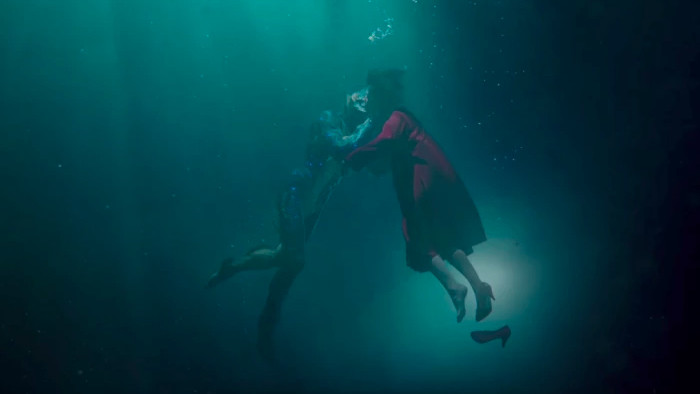
The Shape of Water
The Shape of Water unfolds with a dreamy grace, full of moments that will have you uttering blissful sighs of content. Alexandre Desplat's score is lush and romantic, perfectly underscoring the film's tone, and the cinematography courtesy of Dan Laustsen recalls the look of films from Michael Powell and Emeric Pressburger. Del Toro creates one gorgeous moment after the next, including a show-stopping scene that turns into something out of a classic musical. It's the type of thing only del Toro could create. 10/10 [Full Review]![]()
Suburbicon
It's not often that one film attempts so many different things and manages to make none of them work, but gosh darn it, Suburbicon somehow makes such blundering seem easy. Director George Clooney packs a whole lot of ideas into his tale of the underbelly of 1950s suburbia, but they're really bad, lazy ideas, which is a shame because Suburbicon has quite the pedigree. 5/10 [Full Review]
Unicorn Store
Unicorn Store might not wield the fanciest and finest filmmaking techniques to convey this morsel of knowledge, but it does show Larson possesses a wisdom beyond her years (as anyone who follows her on social media can attest). The first part of the equation can be learned, honed and perfected. The second part is not so easy to pick up. 7/10 [Marshall Shaffer's review]

